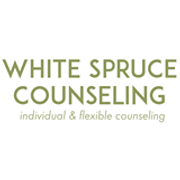How to Discuss Substance Abuse With a Loved One in Need

Talking to someone you love about substance abuse counseling can be challenging, especially when common symptoms can appear similar to those of other mental or physical issues. The National Survey on Drug Use and Health revealed that in 2014, over 21.5 million Americans battled harmful substance habits. Learning the signs of this issue can give you further insight and better prepare you to encourage your loved one to seek substance abuse counseling.
What are the Signs of Substance Abuse?
Signs of substance abuse include behavioral changes, mood and personality shifts, hygiene problems, and health issues. While some symptoms can become increasingly apparent over time, some may suddenly appear. Behavioral changes include being more secretive, changed relationships with friends and family, mood swings, and frequent absences from work or school. Additionally, keep an eye on poor hygiene, and an unkempt appearance and smell of smoke. Watch out for health issues including sudden marks on the body, dramatic weight gain or loss, slurred speech, and vomiting. Seeing one or more of these signs could indicate that your loved one may be engaged in substance abuse and should be handled carefully.
How Can We Talk About It?
 If you suspect that a loved one has a substance abuse problem, having open and honest communication is sometimes the only way to find out for certain. If possible, set a time when you both are available. Ensure that the person is not under the influence of a substance when you bring up the topic. Make sure to list facts and observable behaviors instead of using derogatory language, accusations, and blame to avoid putting them on defense. Allow for a two-way discussion and listen to what they have to say. Having a productive, compassionate discussion could end with your loved one agreeing to seek substance abuse counseling.
If you suspect that a loved one has a substance abuse problem, having open and honest communication is sometimes the only way to find out for certain. If possible, set a time when you both are available. Ensure that the person is not under the influence of a substance when you bring up the topic. Make sure to list facts and observable behaviors instead of using derogatory language, accusations, and blame to avoid putting them on defense. Allow for a two-way discussion and listen to what they have to say. Having a productive, compassionate discussion could end with your loved one agreeing to seek substance abuse counseling.
If you or a loved one is seeking substance abuse counseling, reach out to the qualified professionals at White Spruce Counseling in Rochester, NY. With compassion and support, their experienced counselors can aid you in your journey to recovery. For other types of help including anger management, domestic violence classes, PTSD, and mental health counseling, call (585) 424-2436. Visit their website for more information on their services.
About the Business
Have a question? Ask the experts!
Send your question

